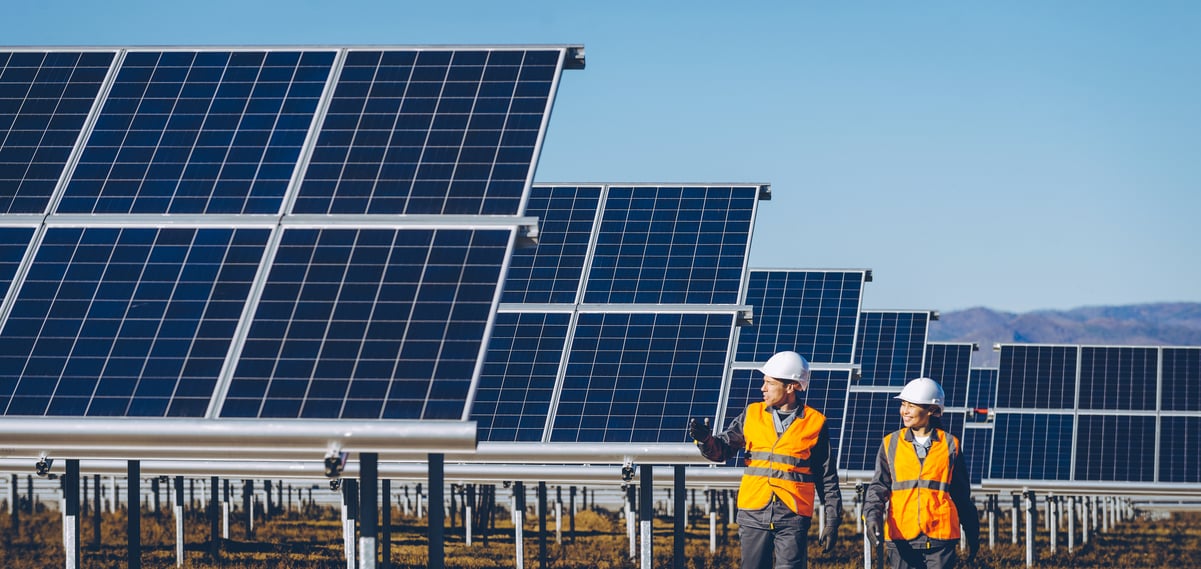First Solar (FSLR +0.04%) gave up a lot of cash flow in the short term to be able to generate the profits that it's making long term. In this Motley Fool Live segment from "The High Energy Show," recorded on June 7, Fool.com contributors Travis Hoium and Jason Hall look at how this company is able to adapt as the industry evolves.
Travis Hoium: First Solar is a solar panel manufacturer. As we have talked about just a little bit, this is a company that is focused on thin-film solar panels. A little bit different technology than about 90 percent or 95 percent of the solar panels that are made in the world today, so most solar panels are basically the same, its a silicon wafer. Kind of started as the less-pure version of the wafers that are used for making computer chips. There're just kind of diced up and put together to make solar panels. First Solar is built fundamentally on its a completely different technology. You take a piece of glass and put a thin film on it. Theoretically, you should be able to make those faster and for lower costs. That has typically been the case over a long period of time, although the cost of silicon solar panels have come down dramatically.
This is one of those companies that I think has become a theme here. They've just executed really well over a very, very long period of time. There was a period in the mid 2000s that the cost of their competitor solar panels were coming down so fast that they were having a lot of margin pressure. But they made a number of moves that ended up being really good and have put them on a really strong financial path. I'll just pull up here their revenue and net income over the last few years.
You can see if we pull this back to 10 years, this 2018 period, if you just look at the orange line, they were losing money. This is when they decided to shut down their manufacturing plants and reconfigure them, go straight from what they call Series 4 to Series 6. They didn't even do a Series 5 because they said the market is changing so fast we got to leapfrog the Series 5 product that we were going to make and go straight to Series 6. Gave up a lot of cash flow in the short term to be able to generate the profits that they're making long term.
Jason Hall: One of only a couple of companies in the industry they could even afford to do that.
Travis Hoium: This is why they can afford to do it, is they have the balance sheet to be able to make these kind of decisions and say, hey, we're playing the long game here. We've got a billion dollars in cash on the balance sheet. We can adapt as the industry adapts.






